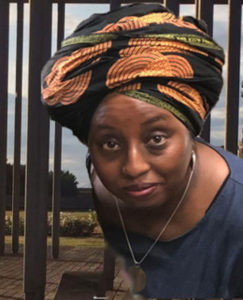
Author: Adeola Russell
Last weekend, I attended my first group gathering of counselling and psychotherapy students run by BAATN – The Black, African and Asian Therapy Network. I have been to similar sessions with cohorts at my place of study run by Eugene Ellis, but I was interested to know more about other Black and Asian students and keen to touch base with like-minded journeywomen and men.
The informal meeting was in some ways very much what I was expecting and somehow, still unexpectedly enlightening. We are all struggling with issues that impact people of colour in tertiary level education: how to fit our community competence into the more rigid confines of the oversight structure of our awarding body; how, in a profession based on relationship building, we accept and even try to make sense of the way in which the fact of our colour impacts other people and ourselves; how we can meet our clients in a therapeutic space, when at times the metabolised impact of our colour makes it difficult to face ourselves and for others to meet us in clarity.
For me, the session brought up the need to further examine my relationship with the politics of my skin colour. To what extent does it define me? Where, within my cultural spectrum, should I take my stand? – Should I be Black African- back to my father’s Nigerian, Yoruba, Ile-Ife roots? Perhaps on the other end of this spectrum, should I stand at the Black British boundary of my racial designation with every person that is not White?
Of course, I have not fully specified my available racial spectrum. Can I not declare myself as anything that suits me – white, brown or any other colour for which I can generalise characteristics or behaviours? How do I decide?
In London, our Mayor – a person of colour has agreed to bring back the stop and search policy, so my race aligned brothers will have more experiences of the type of unnecessarily shaming police behaviour that was typical of the stop search era of the 1980s. And yes – I was there! These shaming incidents silence our communities, and the impacts are just more fodder for the inter-generational trauma we deal with. I imagine that in this matter, the Mayor does not stand for or with his racial cousins, and has a broader perspective to consider.
So perspective is important. Let’s consider the therapeutic environment – the business of sustaining wellbeing from a Black perspective. Here are the statistics:
The Mental Health Foundation reported in 2017 that in general, people from Black and minority ethnic groups living in the UK are:
- more likely to be diagnosed with mental health problems;
- more likely to experience a poor outcome from mental health treatment.
The UK government’s Cabinet Office reported in 2018 that, of the general adult population:
- Black women were the most likely to have experienced a common mental disorder such as anxiety or depression;
- Black men were the most likely to have experienced a psychotic disorder;
- Black adults were more likely than adults in other ethnic groups to have been sectioned under the Mental Health Act.
So I repeat – How far back or forward should the fact of my race make its stand, on the matter of wellbeing within the Black community?
The aspect of my identity that engages with my race is important because it sets the tone for the way in which I engage with community; however, community also has a separate role to play within the aspect of my identity. Professor William Cross, one of the leading experts in the field of Black identity development, at a conference earlier this year, said that identity encompasses how you ‘make meaning of the world; how you perceive the world around you’. A scholar might say that the books you read define your identity. I will add to this; family, culture and personal interests for a start.
As I learn more about myself and the world around me, my perspective shifts constantly. My racial identity is important to me and is a key factor in how I make decisions and make sense of my life. At the meeting last weekend I was sure that I stood with all people of colour trying to find themselves in spaces where they were different. But on reflection, I wonder if I might not have considered better the individualised needs of the group and met those needs more supportively?
But hey, I’m learning here.
